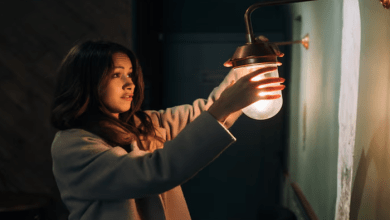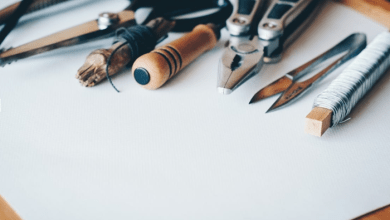
Keeping your home’s plumbing running smoothly requires more than reacting to leaks or clogs. Regular attention to your drains and pipes prevents costly surprises. A professional plumbing system inspection is one of the most overlooked forms of home care. It does more than detect obvious issues.
Regular inspections can also help identify potential issues before they escalate into costly repairs. For instance, a small leak might seem insignificant at first, but over time, it can lead to water damage or mold growth. By scheduling routine checks, homeowners can ensure their plumbing systems remain in optimal condition. If you’re unsure about the state of your plumbing, consider reaching out to a professional. Searching for a plumber near me can connect you with local experts who can provide thorough inspections and maintenance. This proactive approach not only safeguards your home but also offers peace of mind, knowing that your plumbing system is functioning efficiently and effectively.
Moreover, it helps extend the life of your plumbing, protect your home’s structure, and prevent severe water damage. If you’ve ever dealt with a flooded kitchen or a backed-up toilet, you know the stress these problems cause. Instead of waiting for disaster, the more innovative approach is staying ahead.
How Drain Cleaning Supports Plumbing Inspections
Regular plumbing inspections detect early signs of blockages and buildup before serious issues arise. These are the key benefits:
- Experts spot slow drainage and minor obstructions before they worsen.
- Inspections catch grease and debris accumulation that restricts flow.
- Early detection prevents expensive backups and pipe damage.
- Professionals recommend timely cleaning to maintain optimal drainage.
Routine inspections are vital in prolonging your plumbing’s lifespan and functionality. The following illustrates their importance:
- Identifying wear, corrosion, and cracks early to avoid costly repairs.
- Preventing blockages that cause added pressure and pipe deterioration.
- Ensuring smooth water flow reduces strain on all plumbing components.
- Helping homeowners maintain a healthier, more efficient plumbing system.
Regular drain cleaning and inspections save money and prevent unwanted plumbing emergencies.
How Routine Checks Prevent Plumbing Issues
Plumbing inspections are essential for spotting minor issues early and avoiding costly repairs later. Identifying hidden issues early protects your plumbing system and prevents disruptions. These are the common problems that inspections help stop before they escalate:
- Clogs in drains or pipes: Regular checks avoid restrictions of flow that cause backups.
- Hidden leaks: Inspections detect leaks before they damage water.
- Mineral or debris buildup: Identifying debris or scale buildup helps avoid long-term blockages.
Addressing issues before they grow into emergencies not only protects your home but also reduces stress and expenses. These are the key advantages of early problem detection:
- Savings from avoided repairs: Catching issues early reduces expenses for major fixes.
- Prevention of emergencies: Avoiding failures means less stress and inconvenience.
- Long-term cost reduction: A well-maintained plumbing system lasts longer, lowering expenses.
Key Benefits of Plumbing System Inspection
Regular plumbing system inspections offer long-term advantages for homeowners and businesses. By identifying minor issues before they turn into costly problems, inspections help maintain efficiency and safety. These are the benefits:
- Improved water flow and efficiency: Plumbers can remove blockages and optimize water pressure with consistent checks. As a result, your system runs smoothly and uses less energy, which lowers utility bills.
- Better indoor hygiene: Inspections help prevent sewage backups and foul odors that compromise indoor air quality. Consequently, you enjoy a cleaner and healthier living space.
- Early problem detection: Routine inspections catch leaks, corrosion, or worn-out components before they escalate. This preventive method helps reduce repair expenses while avoiding sudden system failures.
Simple Steps Homeowners Can Take Between Inspections
You don’t need a license to take good care of your plumbing. Between professional checkups, there are simple ways to keep your system running well. Preventive care from homeowners supports what the pros do. These small steps help keep your plumbing system inspection results clean, such as:
- Pour boiling water down drains once a week to lessen accumulation.
- Avoid pouring grease, coffee grounds, or food waste into sinks.
- Watch for signs like slow drains, bubbling toilets, or gurgling sounds.
- Look for wet areas or odors near toilets and under sinks monthly.
Taking time to do these things keeps issues manageable and helps your plumber find a cleaner, more stable system to inspect.
Professional Support vs. DIY Efforts
Some maintenance you can handle. Others need expert eyes and tools. Knowing the difference saves money and prevents bigger problems. Trained professionals should handle a complete plumbing system inspection, while basic drain cleaning is fine to do yourself. Here’s a clear comparison table for DIY drain cleaning vs. professional inspections:
| Aspect | DIY Drain Cleaning | Professional Inspections |
| Best For | Minor clogs, hair, or small debris | Recurring clogs, slow drains, or complex blockages |
| Tools Used | Plungers, drain snakes, and household cleaners | Camera inspections, hydro-jetting, and advanced diagnostic equipment |
| Cost | Low, usually limited to household items | Higher upfront cost, but prevents expensive long-term repairs |
| Skill Level Required | Basic knowledge, no special training | Licensed expertise and technical training |
| Risk | May temporarily clear clogs but miss deeper issues | Detects hidden problems and provides lasting solutions |
| Long-Term Effectiveness | Short-term relief may require repeated efforts | Long-term reliability and prevention of future issues |
Keeping Your Plumbing Healthy
Ignoring your plumbing increases your chances of dealing with bigger, messier problems. Homeowners often wait for water on the floor to call a plumber. That’s the wrong time. Regular plumbing system inspection is a smarter path. It catches problems early and saves money over time.
Furthermore, plumbing system inspection in Bucks County also reduces stress by giving you peace of mind that everything works as it should. Clean drains, intense water pressure, and dry walls start with a plan. Avoid the stress of emergency repairs and the cost of water damage. Book a professional plumbing system inspection today to keep your drains clear and your home worry-free.




